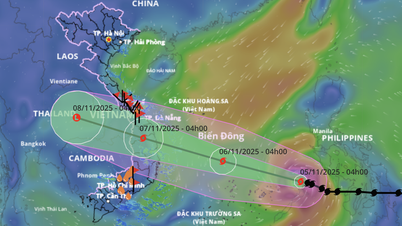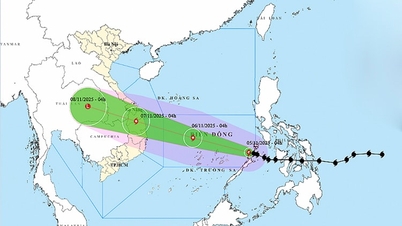
Sitting too much not only leads to overweight and obesity but also increases blood sugar - Illustration photo
Even when eating a well-balanced diet and limiting sugar intake, there are habits that can affect blood sugar levels.
According to a post on Health.com, below are habits that can silently increase blood sugar without you realizing it and how to fix them.
Not drinking enough water
Dehydration can cause high blood sugar levels because lack of water can lead to increased levels of vasopressin and cortisol, two hormones that affect glucose regulation.
Additionally, research has shown that drinking enough water may help reduce the risk of type 2 diabetes.
Always in a state of tension
Stress can trigger stress hormones like adrenaline and cortisol, which can increase blood sugar levels. Constant stress can also make you feel hungrier and crave sugary foods.
Relaxing activities like walking, meditating, or even journaling can help relieve stress.

Lack of sleep causes stress, and also leads to the risk of high blood sugar - Illustration photo
Lack of sleep
Not getting enough sleep can affect your blood sugar levels. Research shows that sleep deprivation not only increases blood sugar fluctuations, but also increases hunger and cravings for sugary foods.
Adults should try to get at least 7 hours of sleep each night. If you have trouble sleeping, talk to your doctor.
Use a lot of sugary drinks
Sugary drinks like soda, chocolate milk, and fruit juice can also raise your blood sugar. Regularly drinking sugary drinks can increase your risk of type 2 diabetes and metabolic syndrome.
Instead of drinking sugary drinks, drink water and unsweetened tea.
Lack of protein and fiber
Protein and fiber aid digestion and help prevent blood sugar spikes after meals.
The order in which you eat your meals also matters. A 2020 study in people with type 2 diabetes found that eating protein and vegetables before carbs reduced post-meal blood sugar by 40% compared to eating carbs first.
Add some protein (chicken, eggs) and fiber (vegetables, whole grains) to every meal or snack.
Sitting too much
A sedentary lifestyle increases your risk of many diseases, including type 2 diabetes. Even light activity (like a 10-minute walk after dinner) can help you control your blood sugar.
Aim for 150 minutes of moderate physical activity each week (or 75 minutes of vigorous activity). Also, try to include at least two days of strength training each week.
Often eat fast food and take-out food
Fast food is often high in refined carbohydrates, unhealthy fats, and excess calories, all of which can raise blood sugar levels. Meanwhile, research shows that cooking at home more often is associated with lower rates of type 2 diabetes and obesity.
You don't have to give up your favorite restaurants completely, but try to cook at home more often with blood sugar-friendly ingredients like lean proteins, healthy fats, and fiber-rich carbs.
What to do if your blood sugar is high?
Suspect your blood sugar is too high? Make an appointment with your doctor. They can do a blood test, check your glucose level, and give you more specific guidance.
If you do have high blood sugar, your doctor can also help you develop a plan to effectively control your blood sugar, including:
Reduce added sugars and refined starches.
Increase physical activity.
Manage concerns to reduce stress.
Improve sleep.
Source: https://tuoitre.vn/thieu-ngu-cang-thang-ngoi-nhieu-lam-tang-luong-duong-trong-mau-20250601185249924.htm


![[Photo] Ho Chi Minh City Youth Take Action for a Cleaner Environment](https://vphoto.vietnam.vn/thumb/1200x675/vietnam/resource/IMAGE/2025/11/04/1762233574890_550816358-1108586934787014-6430522970717297480-n-1-jpg.webp)

![[Photo] The road connecting Dong Nai with Ho Chi Minh City is still unfinished after 5 years of construction.](https://vphoto.vietnam.vn/thumb/1200x675/vietnam/resource/IMAGE/2025/11/04/1762241675985_ndo_br_dji-20251104104418-0635-d-resize-1295-jpg.webp)
![[Photo] Ca Mau "struggling" to cope with the highest tide of the year, forecast to exceed alert level 3](https://vphoto.vietnam.vn/thumb/1200x675/vietnam/resource/IMAGE/2025/11/04/1762235371445_ndo_br_trieu-cuong-2-6486-jpg.webp)
![[Photo] Panorama of the Patriotic Emulation Congress of Nhan Dan Newspaper for the period 2025-2030](https://vphoto.vietnam.vn/thumb/1200x675/vietnam/resource/IMAGE/2025/11/04/1762252775462_ndo_br_dhthiduayeuncbaond-6125-jpg.webp)





























































































Comment (0)